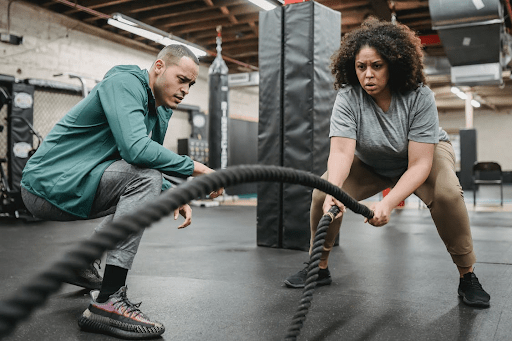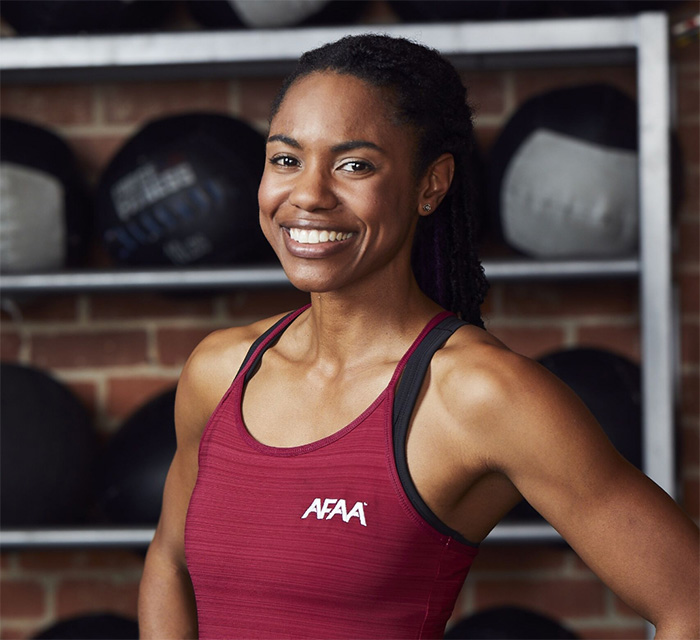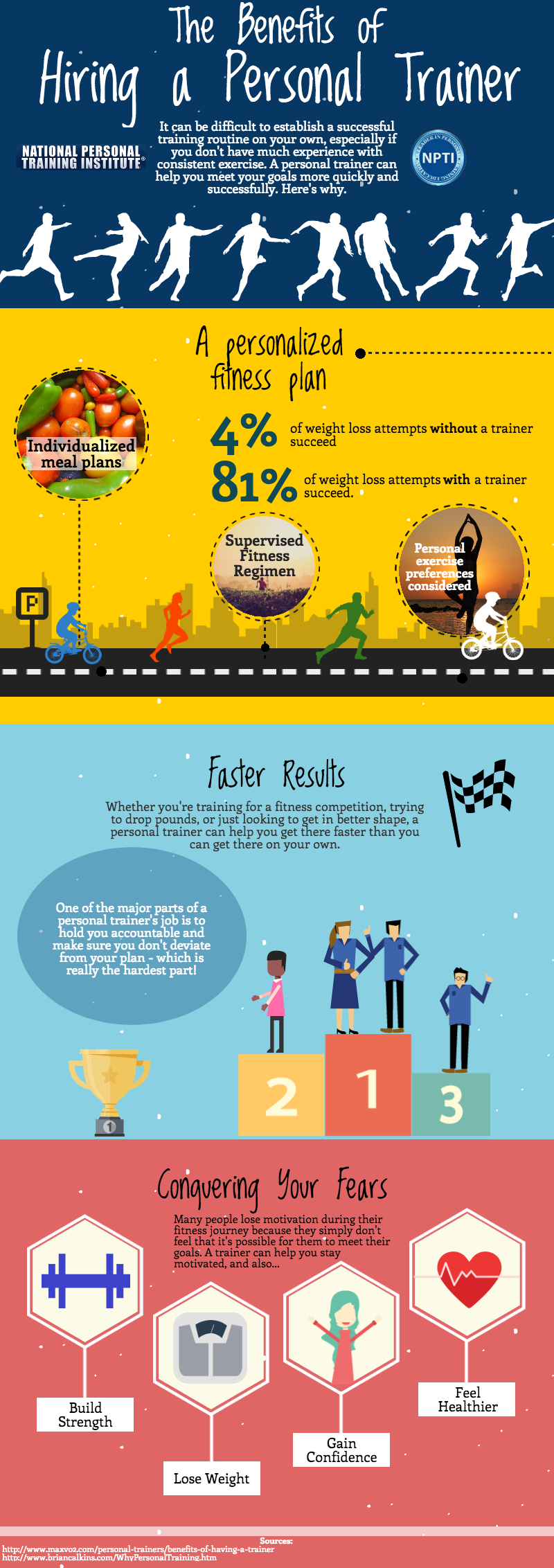
If you want to become a New Jersey personal trainer, there are several important factors you need to know before you apply. These include education requirements and employer requirements. These factors can help you decide if the job is right. You can read on to learn about the job duties and responsibilities for a New Jersey Personal Trainer.
New Jersey's average personal trainer salary
Personal trainers are a good career choice for those who love health and fitness. This job can be rewarding and lucrative. Personal trainers work in gyms and health clubs, educating clients about nutrition and physical fitness. They help clients reach their fitness goals, and they keep them motivated.
New Jersey has a decent number of opportunities for working as a personal trainer. The state is 46th in fitness access. However, it has a low obesity rate, which makes the market for personal trainers a good one. The average New Jersey personal trainer will have moderately fit clients and modest goals. In addition, image conscious clients will make up a portion of the market.

An average salary for a personal trainer in New Jersey is $68,437. This is higher than the national average of $69,184. However, the actual salary you earn will depend on your location, years of experience, and education.
New Jersey requirements for a trainer personal
You should know that New Jersey has very strict licensing requirements if you want to be a personal trainer. To practice in the state you need to be certified by a recognized national agency. You can obtain your certification in a school near you or via online courses.
It is necessary to first complete a formal education in order to become a certified personal trainer in New Jersey. There are many programs with different levels and certifications to choose from. Some provide hands-on workshops lasting several days or even weeks. Others are self-paced and can easily be completed at home. New Jersey's job listings provide valuable insight.
You should consider a large city if you plan to make a career out of being a personal trainer. Newark has a large community, which can translate into more clients. Also, more populous cities are more likely to open their arms to new businesses.

New Jersey employers of personal trainers
Personal training is a rewarding career that improves people's health and fitness. This type of career often requires national certification and education in the field of exercise science. You will be a personal coach and provide support to your clients while they reach their fitness goals.
New Jersey's personal trainers have high salaries and are highly valued. Many of these trainers work in high-energy gyms, spas, and hospitals, as well as independent businesses and wealthy clients' homes and studios. According to New Jersey employers' recent surveys, the salaries of personal trainers in New Jersey range from a starting salary of $44,893 up to a high-level salary at $74,347.
Before applying for a job in New Jersey as a personal coach, there are some things you should remember. First, make sure that you have the correct education. It is necessary to have a minimum high school diploma and basic certifications in life support from the American Heart Association.
FAQ
Is it safe for me to exercise in cold temperatures?
It's a good idea to exercise outside as often as possible. You can exercise outside regardless of the weather. Other factors include visibility, humidity, precipitation and wind speed. Layers of clothing should be worn if you are exercising outside in inclement temperatures.
Are there any exercise I shouldn’t do?
Before you begin any new exercise regimen, make sure to check with your doctor. Some people have injuries or medical conditions that prevent them from doing certain types of exercise. Certain activities require special equipment and training. Swimming, for instance, requires both a swimsuit as well as access to the pool.
Should I drink alcohol when I work out?
Alcohol has calories, so it's not recommended to consume large amounts while working out. The moderate intake of alcohol (one a day) may improve endurance for workouts. It may also reduce fatigue from exercise and muscle aches.
How many hours of sleep should you get each night?
The amount of sleep recommended depends on your age, gender, and personal needs. Most adults need 7 to 9 hours of sleep per day. Teenagers and children typically need about 10 hours of sleep per night, but this number decreases as they grow older.
What are Resistance Training Exercises?
Resistance training includes using weights and other objects to perform specific movements. Lifting weights, for example, can help strengthen your arms and shoulders, chest, backs, legs, core, and core. Resistance training helps build muscle mass and bone density. It also promotes overall strength.
How nutrition and exercise can make your life better.
Exercise can help you stay healthy, lose weight and gain muscle mass. It also helps reduce stress. Nutrition is vital for energy, mood, sleep, and overall health. To live longer, you should eat less meat, moderate your alcohol intake, stop smoking, and get regular exercise.
Do I need food before I exercise?
No. No. However, if you're hungry after working out, you might want to snack on something light like fruit or yogurt.
Statistics
- In high-income countries, 26% of men and 35% of women were insufficiently physically active, as compared to 12% of men and 24% of women in low-income countries. (who.int)
- Physical activity confers the following maternal and fetal health benefits: a decreased risk of pre-eclampsia, gestational hypertension, gestational diabetes (for example, 30% reduction in risk) (who.int)
- Globally, 81% of adolescents aged 11-17 years were insufficiently physically active in 2016. (who.int)
- According to the Centers for Disease Control and Prevention, chronic diseases cause 7 out of 10 deaths in the U.S., and treating chronic diseases accounts for 86% of U.S. healthcare costs. (mana.md)
External Links
How To
How To Burn Belly Fats Faster
When trying to lose weight, belly fat is often viewed as a problem. It's actually a good thing, in fact. It is the fat in your stomach that protects your organs. Let's look at how to rapidly lose belly fat.
The main factors that lead to body fat storage are stress and lack exercise. Stress makes us feel hungry constantly because it stimulates the production of the cortisol hormone. Cortisol is responsible for an increase in insulin levels. The excess calories are stored as fat by insulin. A lack of sleep leads to adrenaline being released into the system which causes an increased appetite. These extra calories can easily be lost through exercise.
There are many options to reduce belly weight. Any one of these can be tried, depending on how much you have to spend. These are some great tips to help you lose belly fat fast.
-
Reduce the amount of food you eat. Instead of eating three large meals per day, try to eat smaller meals. This way, you'll consume fewer calories overall.
-
Get plenty of water. Water flushes out toxins and keeps you hydrated. Drinking water before meals will help you feel fuller for longer, so you don't overeat.
-
Avoid unhealthy snacks. If you're looking for quick fixes, snack foods like chips, cookies, candies, etc. might seem tempting. But avoid these fattening treats as they contain lots of empty calories and too much sugar. Instead, choose healthy alternatives like fruits, veggies, nuts, seeds, and whole grains.
-
At least three times per semaine, do strength training. Strength training builds muscle mass which burns more calories even while resting. It strengthens bones and muscles, ligaments, muscles, tendons, heart, lungs, as well as joints.
-
Walk or stretch regularly. Stretching increases flexibility and mobility. It also reduces back pain. Walking for 30 minutes is a great way to burn calories.
-
Reduce alcohol intake. Your diet is empty of calories, and alcohol has no nutritional content.
-
Lose weight gradually. First, determine your current weight. Then, add 5% to 10% to your body weight to get your ideal weight. Once you have established your ideal weight, reduce your daily calorie intake by 500 to 1000 calories each day until you achieve your goal.
-
Avoid processed foods. These foods contain high levels of sugar, salt, and preservatives. Processed foods are often very convenient but don't provide enough nutrients to keep you healthy.
-
Don't skip breakfast! Breakfast is good for your concentration, memory, and energy. You should have protein (such as eggs) and fiber (such as oats) for breakfast.
-
Have regular bowel movements. Gas and bloating can result from irregular bowel movements. This can be prevented by drinking plenty of water and increasing fiber intake.